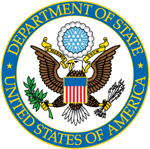LATEST ARTICLES
READ THE LATEST FROM USTL PARTICIPANTS
Wait, what? but why? It's all about culture shock
Posted on: 31 January 2020 BY: AVandeling
Culture Shock
“So, how’s America treating you so far? Do you like it to be here though? How do you feel?” Honestly, I have had trouble answering these questions. It was not that I did not know how, but I kept worrying that people would not understand my English when I respond, or would my answer be too rude or honest? Did they really want to know how I felt? I could just say something funny out of my experience, but would they laugh? Maybe we won’t even have the same sense of humor. OMG! That would be so awkward.
Most international students, including me, will get to the stage where we feel either homesick or experience culture shock. As a freshman myself, I have experienced both. I was very overwhelmed. My first semester did not go as smoothly as I expected. Before I left my home country, I was given some advice by some past and current USTL scholars who had been through this same experience. Many people also reminded me:
“You won’t get used to their food, because you don’t even like cheese,”
“Bring a thick jacket because you have never experienced winter before,”
“Ask questions when you don’t understand something,”
“Everything is expensive,”
“You are going to feel very homesick when you get there.”
“Yeah I know, but I am going to be fine” I would say, confidently.
This kind of culture shock for me is nothing. I know I am capable enough to face culture shock and will find ways to address them. I am also very curious and love to learn about new cultures, so I am just going to be fine; however, my perspective of culture shock was a bit different from reality. Have you ever heard the term ‘iceberg’? That’s how culture shock looks and feels. There’s a visible and invisible part of it, and the visible parts of it were easy for me to navigate. In East Timor, you cannot talk while you are eating, you don’t have to hold the door for other people who are behind you or next after you, you have to take off your shoes when you get inside the room, it is unnecessarily to buy jacket because of warm weather, and apparently, rice is very essential for us. Those seemingly little things quite different here in the United States, but they are visible things that are easy to adapt to and you don’t need to work extra hard to get adjust to them.
On the other hand, the culture shock that I suffered the most was something that abstract, invisible, and very hard to adapt to. Back home, my friend says that I am humorous, but my same jokes don’t always work here. I also sometimes do not understand other people’s jokes
Also, another contributor to my culture shock was that Americans are extremely individualistic, and that was not something I grew up with; plus, they have a lot of freedom in their country. People are very independent and know what they do. Well, not every American has thought about what they wanted to do in the future, but most have a fairly clear plan.
“So, what is your plan after graduation?” I ask.
“I want to work in a robotic company in Japan because I am very obsessed with robots.”
“I will continue earning my master’s degree before I work, but I think I want to do some volunteer work related to my studies and have a part-time job at the same time.”
“I am not sure, but I definitely want to travel around Europe and will come back after that and start to find a job.”
Every time I have a conversation with my American friends the conversation ends up being something like this. I noticed people here care more about themselves, and they make a decision and decide on their own what they want to do. Unlike us, we live in a very collective culture to the point where sometimes it is hard for us to do something by ourselves. We always seek out help from one another. So, as you can tell, people’s lives here are very different from what we have in Timor. Sometimes, those differences are what made me feel so left out, confused, and stressed because I did not realize that I come from such a different place. I often found it difficult to understand other people when they speak, why they thought differently and have a different perspective. Therefore, sometimes I got stuck to speak when someone asks me a simple question like this.
Culture shock should be something that we can overcome if we are aware of it before our travels. I wish I had recognized it earlier, but all in all, it was experienced to learn, and I am glad now that I get used to their culture and almost everything that seemed very new at first is not new anymore. My social life is getting better and I am so excited to make a lot of memorable moments while I am here.
I also want to say to the next USTL scholars, I know you are very excited to come here, but be ready to face all these challenges. Embrace your culture and any differences you have, being open-minded and willing to learn, make lots of new friends, ask questions and you will succeed. Thank you!

